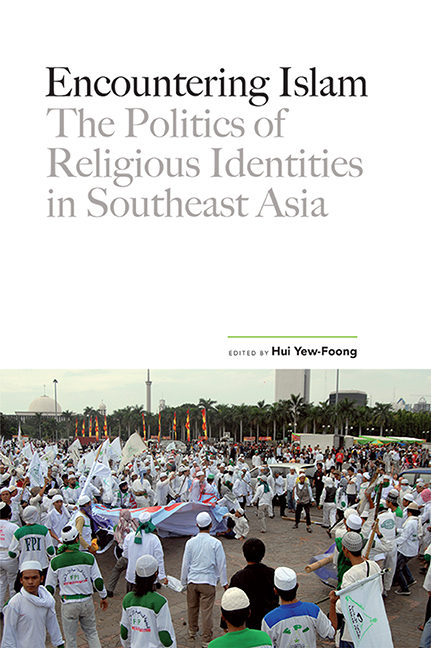Book contents
- Frontmatter
- Contents
- Acknowledgements
- Contributors
- Part I Introduction
- Part II Islam across Borders
- Part III Malaysia
- Part IV Indonesia
- 8 Natsir and Sukarno: Their Clash over Nationalism, Religion and Democracy, 1928–1958
- 9 Religious Freedom in Contemporary Indonesia: The Case of the Ahmadiyah
- 10 Religion and the Politics of Morality: Muslim Women Activists and the Pornography Debate in Indonesia
- Part V Muslim Minorities
- Index
8 - Natsir and Sukarno: Their Clash over Nationalism, Religion and Democracy, 1928–1958
from Part IV - Indonesia
Published online by Cambridge University Press: 21 October 2015
- Frontmatter
- Contents
- Acknowledgements
- Contributors
- Part I Introduction
- Part II Islam across Borders
- Part III Malaysia
- Part IV Indonesia
- 8 Natsir and Sukarno: Their Clash over Nationalism, Religion and Democracy, 1928–1958
- 9 Religious Freedom in Contemporary Indonesia: The Case of the Ahmadiyah
- 10 Religion and the Politics of Morality: Muslim Women Activists and the Pornography Debate in Indonesia
- Part V Muslim Minorities
- Index
Summary
In the closing months of 2008, as Indonesia prepared to hold its third national elections since the downfall of the Soeharto regime, a continuing point of controversy was the growing strength of religion in the country's political life. Discussion of this issue became more heated with the passing of the pornography bill on the national scene (see Rinaldo, this volume) and the increasing number of local initiatives being introduced aimed at strengthening Islam's social and political role. These measures sparked widespread controversy, as they were often seen as aimed at undermining freedoms essential to a democratic society in order to appease some of the stronger Islamic groups (see also Platzdasch, this volume). Similar controversies have been part and parcel of the Indonesian political scene throughout the country's postcolonial history, though they were forcibly suppressed during much of Soeharto's tenure.
Until the final years of his regime Soeharto, like Sukarno before him, had seen the force of political Islam in Indonesia as a threat equal to that of communism and thus needing to be similarly contained. Especially during his first two decades in power, Soeharto attempted to impose the kind of control the colonial government of the Netherlands East Indies had earlier maintained, wherein religion was permitted to play a large role in the country's social and cultural life while it was rigorously excluded from exerting any political influence.
In the late colonial period and in the first decades of independence, Mohammad Natsir, who headed the Masjumi, the country's largest Muslim political party, had been one of the major Indonesian political figures who had fought for the inclusion of religion in the political arena. At the same time, in the 1930s and 1940s, Natsir was in the forefront of the nationalist movement and in the 1950s strove hard to maintain Indonesia as a democratic state. His relationship to Sukarno, Indonesia's first president, and the alliance and disagreements between the two men throw some light on the debates within Indonesia over the form the new state should take and the role of Islam within it.
- Type
- Chapter
- Information
- Encountering IslamThe Politics of Religious Identities in Southeast Asia, pp. 191 - 217Publisher: ISEAS–Yusof Ishak InstitutePrint publication year: 2012

